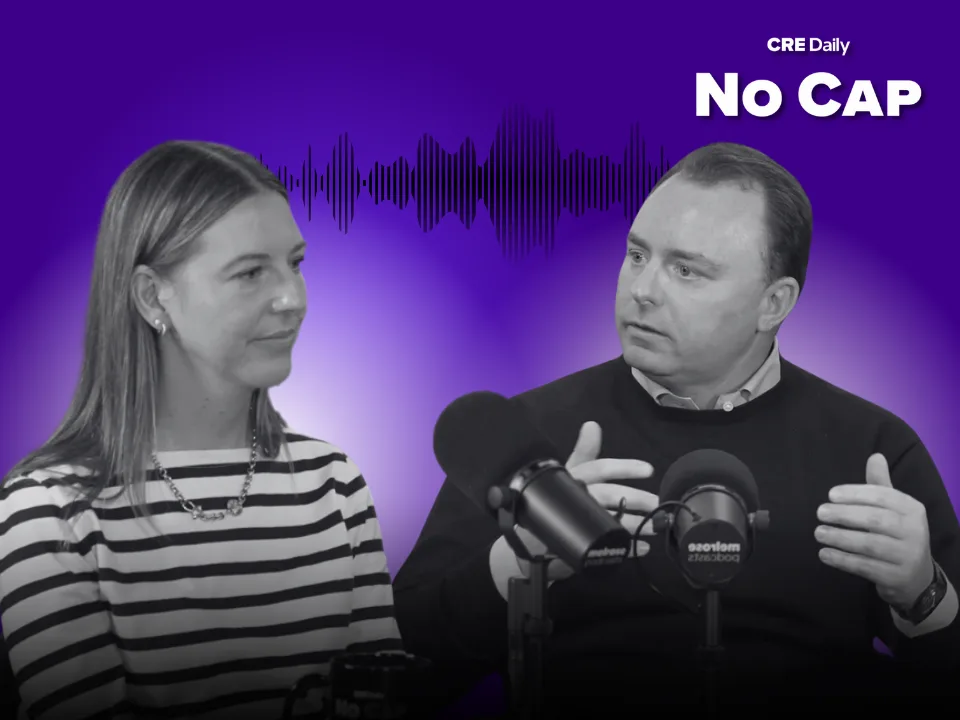Season 3 of the No Cap Podcast continues with an exciting conversation with Crowd Street CEO John Imbriglia and Executive Managing Director Anna-Marie Allander Lieb. Together, they open up about the company’s high-profile $63M fraud scandal, how they’ve responded, and what the platform’s bold pivot into private markets (including private equity and credit) means for investors.
John, a Wall Street veteran and former iCapital exec, joined last year to help steer the company through crisis and into a broader future. Anna-Marie, who’s been with CrowdStreet for nearly a decade, brings perspective from inside the company’s evolution and why they’re staying grounded in CRE while building something much bigger.
Conversation Highlights
Jack: Give us the big picture. What is CrowdStreet today?
John Imbriglia: CrowdStreet started with one goal, giving high-net-worth investors access to private real estate. Now, we’re building a full private markets platform that includes private equity, credit, and venture capital. We’re letting investors go direct, without needing a financial advisor. That’s the future.
Anna-Marie Lieb: Our members used to treat CRE investing as a hobby. Now, they’re allocating serious capital through our platform, with or without an advisor.
We’re giving everyday investors access to private markets, without needing a financial advisor.
A $63M fraud rocked the platform and here’s how it was handled.
Alex: Let’s address the elephant in the room…the $63M misappropriation scandal. What happened?
John Imbriglia: A developer named Nightingale, led by Eli Schwartz, misused client funds. Once we discovered the fraud, we acted quickly, working with the SEC, regulators, and law enforcement. Schwartz is going to prison. We’ve been leading the charge on recovery, and we’re well-resourced to fight any remaining issues.
But we’re not stuck in the past. We take it seriously, but it’s not stopping our vision.
Jack: What was your mindset coming in as CEO?
John Imbriglia: I came from iCapital, where we opened up private markets to wealth managers. CrowdStreet already raised over $4B in one asset class, CRE. I saw an opportunity to scale that success and expand access to more asset classes for investors who don’t use advisors.
Blackstone, Apollo, and others are targeting the wealth channel. We’re targeting the investors themselves, the millions of Americans who want control, access, and simplicity.
We’ve raised nearly $5B…and we’re just getting started.
Balancing billions in investor demand with deal flow takes serious strategy.
Alex: How do you balance investor capital with deal flow?
Anna-Marie Lieb: We’re a best-efforts platform connecting capital with sponsors, not managing the investments ourselves. But we’ve spent 10 years building a trusted network of middle-market sponsors. We’re transparent with them about investor demand, which naturally fluctuates with the market.
Alex: What does your vetting process look like now?
Anna-Marie Lieb: It’s intense…as it should be. We review sponsor track records, do background checks, credit checks, AML/KYC. We evaluate not just past performance but stress in current portfolios. That diligence is what sets us apart.
We’ve raised nearly $5B, and we use that data to assess risk and investor appetite.
How fast can you actually raise capital on CrowdStreet?
Jack: What’s a realistic timeline for a sponsor to get equity through CrowdStreet?
Anna-Marie Lieb: For a new sponsor, expect around 30 days for vetting. If it’s a repeat group, we’ve closed in as little as two weeks. Add another 30 days for production and compliance, then another 30 days for fundraising. So, best case, 60 to 90 days from intro to funded.
Alex: What kind of capital are investors putting in?
Anna-Marie Lieb: Mostly LP equity. But we’ve also done co-GP funds, preferred equity, and even GP stakes. It’s about giving members optionality.
John Imbriglia: Our mission is to offer a diversified private markets menu, CRE, private equity, private credit. The investor decides what fits their strategy.
Jack: Final thoughts…where’s CrowdStreet going from here?
John Imbriglia: We’ve got the tech, the investor base, and the track record. Now it’s about scale. We’re rebranding, relaunching, and reshaping what private markets access looks like, directly for individuals, not just institutions.
Watch the full episode on our YouTube Channel or your favorite podcast app.
Tune in weekly for new episodes of No Cap by CRE Daily!



















